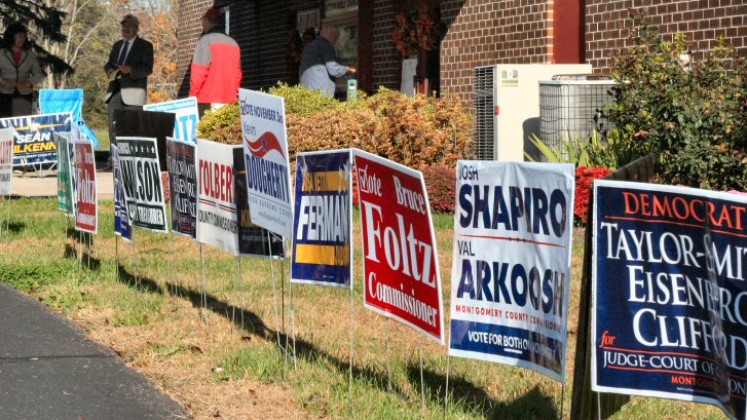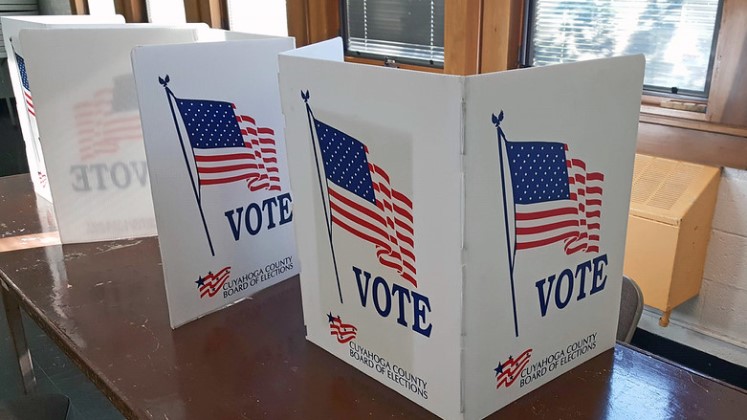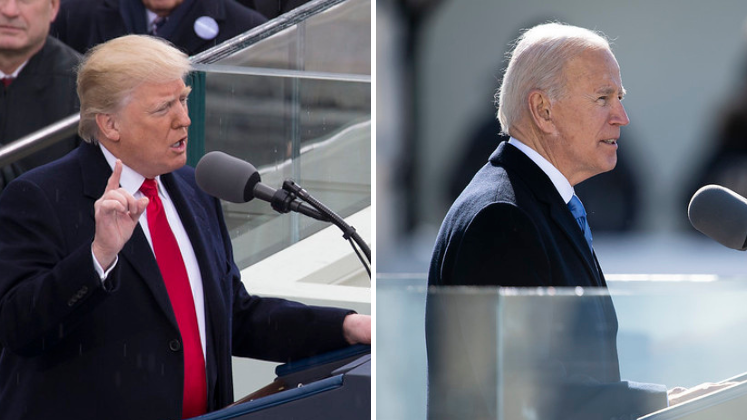 The US Civil War is having an unprecedented influence on the 2024 presidential election, writes Laura Smith. In December, former South Carolina Governor, Nikki Haley, was criticized for her comments about the Civil War which ignored the role of slavery. In addition, the 14th Amendment, which was ratified following the end of the Civil War, is being used by some state officials in an attempt to keep former President Trump off the Republican primary ballot.
The US Civil War is having an unprecedented influence on the 2024 presidential election, writes Laura Smith. In December, former South Carolina Governor, Nikki Haley, was criticized for her comments about the Civil War which ignored the role of slavery. In addition, the 14th Amendment, which was ratified following the end of the Civil War, is being used by some state officials in an attempt to keep former President Trump off the Republican primary ballot.
- This article is part of ‘The 2024 Elections’ series curated by Peter Finn (Kingston University). Ahead of the 2024 election, this series is exploring US elections at the state and national level. If you are interested in contributing to the series, contact Peter Finn (finn@kingston.ac.uk).
On Wednesday, December 27 2023, Republican presidential hopeful Nikki Haley was surprised by a question at a town hall in New Hampshire- “What was the cause of the United States Civil War?” Haley, who, up to this point, was surging in New Hampshire following the endorsement of popular Governor Chris Sununu, appeared visibly surprised, and did not mention slavery in her answer. She shouldn’t have been surprised. Not only is she a former governor of South Carolina, the first state to secede, and the Civil War continues to impact American life in a multitude of ways, but the 2024 presidential race itself has already linked back to the Civil War to an unprecedented degree.
The Civil War and its legacies have a tendency to come up, often in tangential rather than direct ways, during a presidential campaign. During the 2020 campaign, then-candidate Joe Biden and Kamala Harris got into a dispute during a Democratic primary debate over school busing, hardly a current issue but one that continues to resonate with the legacy of segregation and enslavement that came before.
So why is 2024 different? For the first time, a candidate and former president may be potentially ineligible – at least in some states – to run because of his involvement in an insurrection. Donald Trump’s actions on January 6, 2021, have led to a great deal of unresolved litigation. But with his continuing frontrunner status for the Republican presidential nomination, no question is more pressing than his actual eligibility to run and to hold office. The entire question of his eligibility rests in the Civil War, and its aftermath, and specifically the 14th Amendment to the Constitution.
The 14th Amendment
Before now, most Americans would associate the 14th Amendment, ratified in 1868, with citizenship and the period of Reconstruction following the Civil War. Coming after the 13th Amendment abolished slavery, the 14th Amendment sought to recognize the citizenship of those formerly enslaved alongside people “born or naturalized in the United States.” This led to the final amendment of the Reconstruction era, the 15th Amendment, which enabled African American men to vote. Trump has inadvertently highlighted the citizenship aspect of the 14th Amendment by arguing his policy to end birthright citizenship for any children whose parents are illegal immigrants. This is a slightly narrower policy than banning birthright citizenship to children born to foreign nationals, as he first argued could be instituted as an executive order in 2018.

“Nikki Haley” (CC BY-SA 2.0) by Gage Skidmore
But the 14th Amendment does not only focus on citizenship. It also sought to disqualify ex-Confederates from returning to political office following their regaining of power during Andrew Johnson’s lenient Presidential Reconstruction. Before its passage, former Confederates enforced Black Codes, an early version of Jim Crow laws, in an attempt to reestablish their power within the racial hierarchy that had existed across the South. But Section 3 of the 14th Amendment has become a political lightning rod for 2024 as it bars anyone from holding office who, having taken an oath to protect the Constitution, such as during a presidential inauguration, has then “engaged in insurrection” against the nation.
The ongoing question of Trump’s eligibility for office has grown increasingly fraught since the Colorado Supreme Court decided to block him from the state’s ballot, leading the state’s Republican Party to appeal to the United States Supreme Court. On December 29th, Maine’s Secretary of State, Shenna Bellows, removed Trump from that state’s primary ballot. Colorado and Maine are so far the only states to disqualify Trump, with others, most recently Michigan, rejecting arguments to remove Trump from the ballot. The question is currently under consideration in Oregon and a number of other states.
Facts still matter in presidential elections
In not mentioning slavery in her answer on the cause of the Civil War, Haley caused a furor both during the town hall itself and across the nation afterward. Yet this political fallout gives us some interesting insights. Since his original appearance in the political arena in 2015, Trump’s disregard for American history and facts more broadly appears to have become largely accepted and even expected by his base and opponents alike. But Haley’s controversial statement highlights that this acceptance only relates to Trump himself, with other candidates still held to a more traditional standard.
While this is not new, it reveals two truths about American political culture today. Although misogyny so far has remained an insurmountable obstacle for women being elected to the highest office in the land, Trump has not managed to create new norms. In New Hampshire and, more broadly, across the country, it remains unacceptable not to recognize the facts of American history and the crime against humanity of slavery. If Haley truly wants to take on the Donald, she needs to embrace facts, not in clarifying her responses, but when first asked a question. That will be her true test in this unprecedented 2024 campaign.
- Please read our comments policy before commenting.
- Note: This article gives the views of the author, and not the position of USAPP – American Politics and Policy, nor the London School of Economics.
- Shortened URL for this post: https://bit.ly/3HepRiB






